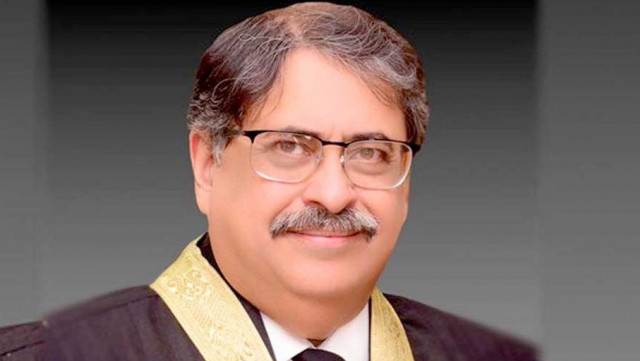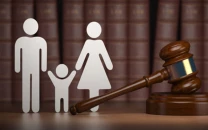Only ‘genuine’ accountability effective: IHC CJ
Justice Minallah says judges must learn not to fear or be influenced by social media content

Islamabad High Court Chief Justice Athar Minallah on Thursday said for accountability had to be genuine in order to be effective and not selected or targeted.
“Judges are indeed not above the law. They ought to be held accountable,” the judge said while addressing a webinar titled ‘Independence of judiciary in the age of social media’.
“Criticism in good faith is an accepted and welcome form of accountability but if it is based on improper considerations the right to a fair trial is threatened, besides the rule of law being undermined,” he added.
“This makes it a herculean task for an independent judge to uphold the oath of office.”
The IHC CJ noted that fake misguided and malicious propaganda campaigns on social media could harm individuals involved in judicial proceedings including judicial officers.
The judge pointed out that the IHC had remained in focus because of the litigation involving political content.
“In 2014, political forces were asserting their rights to freedom, association and free speech by claiming relief against the actions of the then elected executive,” he recalled.
The aggrieved, he added, ended up by invoking the jurisdiction of the IHC and walked away with issuance of writs that guaranteed their constitutional rights.
“The tables turned after the general elections held in 2018 and so did the expectations of the rival parties. A favourable verdict becomes landmark relief for one party while the followers of the other vigorously start a vilification campaign by imputing motives to the judge.”
The IHC CJ said many of his judgments were not to the liking of the executive branch of the State but he remained immune from being subjected to any kind of influence because no one could gain access.”
The judge said he stopped using a smart phone so he remained oblivious to what was happening on social media platforms. “But despite all these self-imposed restraints, I do get to know about what goes viral on social media platforms.”
He elaborated that initially, the fake allegations, intrusion of his privacy, imputing motives and the mystery of social media were irritating, but soon he realised that such malicious propaganda campaigns and personal vilification based on fake and misguided information manifested frustration and failure to influence the court.
“Fake, false and misguided propaganda campaigns are short lived because truth ultimately prevails.”
The IHC CJ shared a social media vilification campaign directed towards him.
“After deciding a case relating to a political personality, I was informed that a gentleman from outside the country had uploaded a video on social media platforms alleging that I was a beneficiary of a property gifted by the political appellant.”
He added that the details of the property were narrated with such confidence that those who did not know him would have been justified in believing the story.
“I certainly do not support banning the platforms or placing restrictions because free speech is one of the most valuable and cherished constitutional and human right,” he said.
“A judge must learn not to fear or to be influenced by the content on the social media platforms. The fake, malicious, false and misguided content and material on these forums should be ignored and the challenges be met on the basis of commitment and faith in the oath of office.”



















COMMENTS
Comments are moderated and generally will be posted if they are on-topic and not abusive.
For more information, please see our Comments FAQ